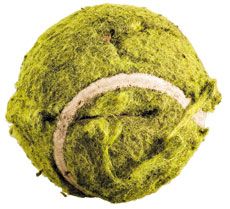You need to vet your veterinary practice's burial and cremation providers
Due diligence is deserved when recommending funeral services for pets.
One of the most important moments in solidifying the family-pet-veterinarian bond comes when it's time to say goodbye to a beloved pet. Unlike most other healthcare professionals, we provide cradle-to-grave care, and when it works like it should, a "good death" is the bookend to a "good life." But sadly, what happens after we perform the most sensitive of services inside our practices far too often causes a stain on our practices and the profession.

This was brought to life for me as I spoke to a conference of 600 professionals who handle cremation and funeral services.
Like veterinarians, the cremation and funeral professionals have their inside jokes, like, "We're the last ones to 'let you down!'" They were dead serious, however, when several rose up after my talk to challenge our profession for unprofessionalism and duplicity.
About half of the people raised their hands to tell me they worked at companies that did services for both humans and pets. They told me that the grief at a pet funeral is much worse than at a funeral for a human family member.
Shocked, I asked why. They said grieving for people is always through filters of family disputes, past duplicity, hidden agendas ... the list went on and on. With pets, there's none of that, they said-just pure love, loyalty and happiness.
And because there is so much emotion in a pet's passing, they always make sure pets and pet owners are cradled in loving, skilled hands throughout the process. Where it all falls apart, they said, is the hand-off from the veterinary hospital to them.
I heard story after story, with voices rising in passion, that the veterinary community mostly chooses who to use for these services based on cost, or rebates, or seemingly at random. In a community, often the worst-run facility with the worst reputation among other death care professionals is the one that thrives financially. They gave me three specific ideas on how to make sure clients are handled by better cremation and funeral professionals:
Visit the pet death-care facilities within a reasonable distance from your practice. Judge the facilities the way clients judge veterinary practices. Look at the exterior. Watch for dead plants, a no-no for a facility that should be celebrating life. Make sure it's clean-looking and doesn't smell bad.
Ask about their process. Find out exactly what happens from the time they pick up a pet until cremation or interment is complete.
Ask about their communication. How does the death-care facility team talk to and meet with pet owners?
We research laboratories, equipment and suppliers-we need to do due diligence when researching and recommending a death-care facility. If we do things the right way, then we can better guarantee a "good death" to a pet's "good life" and a pet owner's return to your door with their other pets.
Dr. Marty Becker is a speaker and author of 21 books. He is the Veterinary Economics Practice Leadership Editor and practices in North Idaho Animal Hospital in Sandpoint, Idaho.